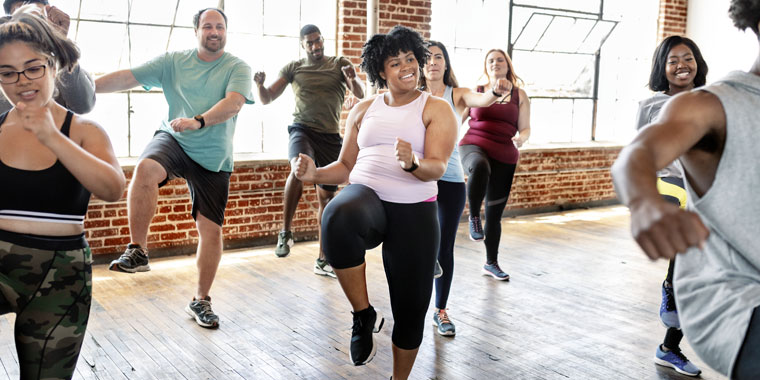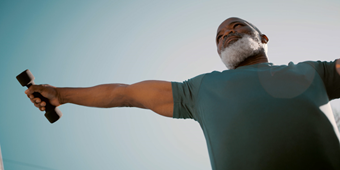Studies Show Direct Link Between Exercise And Longer Lifespans

Find Your Perfect Match
Answer a few questions and we'll provide you with a list of primary care providers that best fit your needs.
Interested in living longer? You may know that routine exercise has a direct link to your long-term health and well-being, but two recent studies now claim to show a precise connection between physical activity and longevity.
Though findings connecting exercise to health are nothing new, these recent studies analyzed the exercise habits of more than 10,000 men and women over decades, which revealed some very interesting conclusions. In essence, the data established that individuals who exercise up to two and a half hours per week (or about 30 to 45 minutes — or 7,000 to 8,000 steps — most days) may reduce their risk of premature death by as much 70 percent.
Premier Health Now spoke with Christopher Cleverly, AT, CSCS, an athletic trainer with Premier Health Sports Medicine, to get a better understanding of these findings and how they can be applied to your daily exercise regimen.
A Balanced Approach To Exercise
Perhaps one of the most interesting lessons was the revelation that when it comes to exercise, you can definitely get too much of a good thing. Though research certainly showed a direct correlation between physical activity and longevity, it also showed that excessive exercise can actually be harmful to your health.
“The natural assumption is that if 7,000 steps is good for my health, then doing more must be better for me,” says Cleverly. “This information tells us that excessive amounts of exercise can actually be detrimental to our bodies and overall health longevity. Having balanced and objective measures is a great way to get individuals up and moving and provide them with a goal-oriented exercise program that can be tracked with a phone or watch.”
Cleverly is careful to caution that a one-size-fits-all approach definitely does not apply when it comes to creating a personal exercise routine. Instead, he stresses that it’s vital to be aware of your body’s limitations and to plan accordingly.
“If you’re older and haven’t been active for several years, it’s not reasonable to assume you can go out and run or bike for long durations at a high intensity,” Cleverly says. “Instead, start with a basic activity, such as walking, and gradually increase your activity over time. It is always better to start conservatively to assess how your body responds and then adjust your regimen accordingly.”
In the end, the key to a longer life may not just be the result of working harder, but also working smarter. Small, incremental efforts to get and stay active can pay major dividends as time moves on.
“Starting with a basic routine allows you to experience the benefits of exercise without putting extreme stress on your body,” says Cleverly. “I do also recommend that anyone wanting to start a new workout routine should consult with a trained health professional to achieve the best results and healthiest outcomes.”
Find Your Perfect Match
Answer a few questions and we'll provide you with a list of primary care providers that best fit your needs.
Source: Christopher Cleverly, AT, CSCS, Premier Health Sports Medicine





